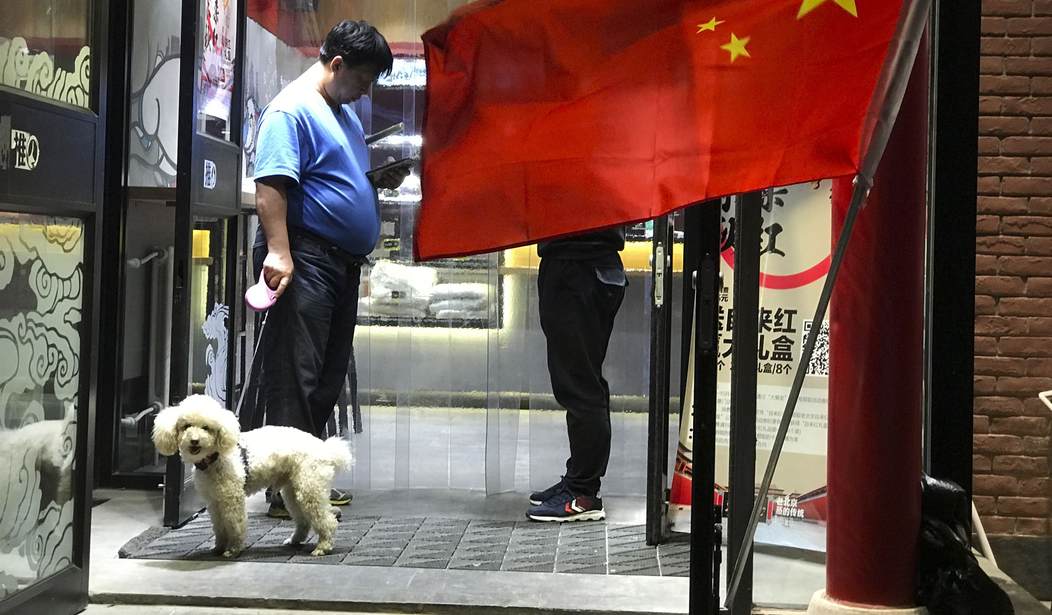In Hong Kong's 2019 civil upheaval, China's communist dictatorship confronts two intricate information-age political battles.
One battle is a clash of national narratives, regionally with suspicious neighbors (including Hong Kong) who resist Chinese expansion, globally as the regime's most potent international adversary, the U.S., squeezes Beijing economically and cajoles it politically. For example, the U.S. threatens China with legal action and economic penalties for its pervasive theft of intellectual property. China has yet to effectively counter that verifiable charge.
Perceived state diplomatic and economic reliability, systemic credibility and cultural prestige are the stakes in this clash.
The second battle is for the Chinese Communist Party's authoritarian self-preservation -- in blunt terms, communist elites remaining in power.
A deplorable Beijing power grab, the Extradition Law, ignited Hong Kong's weeks of protests.
The 2019 protests, however, intentionally echo brutal Chinese history that scars the Chinese Communist Party.
Hong Kong's first major demonstration was a march commemorating the 30th anniversary of the Tiananmen Square massacre. In Beijing on June 4, 1989, the People's Liberation Army, on the order of leader Deng Xiaoping, attacked peaceful pro-freedom protestors and murdered over 2,000.
Hong Kong's 2019 reformers invoke Tiananmen 1989 as a warning that authoritarian brutality comes with a cost. Despite drastic efforts to literally erase the event's historical reality, for three decades, Tiananmen's dark "tiger" has haunted the regime, seeding distrust of regime motives and encouraging quiet resistance to the party dictators.
The Politburo knows it's distrusted. It spends massive amounts of money attempting to control information (e.g. digitally erasing internet mention of Tiananmen) and police Chinese citizens. Its Social Credit Rating system collects data on a particular person from cellphones, public video cameras, internet activity, travel logs and the opinion of neighbors. Security operatives analyze the individual's behavior, looking for criminal patterns or -- get ready -- signs of anti-government behavior.
Recommended
Hong Kong residents know that fellow Chinese living outside the Hong Kong Special Administrative Region face totalitarian restrictions. Article 5 of Hong Kong's Basic Law promises "one country, two systems," adding, "the socialist system and policies will not be practiced in Hong Kong."
Protestors contend the Extradition Law is a subtle tyrannical power play infringing on the Basic Law.
The law, promulgated by pro-Beijing legislators and supported by the Beijing-selected chief executive, would have allowed Hong Kong to transfer criminal suspects "to jurisdictions with which it lacks extradition agreements." The city does not have an extradition deal with the Peoples Republic of China. Protestors fear the communist government would pressure weak Hong Kong authorities to arrest Beijing's political critics on vaguely criminal charges. They would be tried in China.
Reformers see the Extradition Law as a totalitarian tentacle undermining Hong Kong's rights and circumventing its judicial system. The communist regime's word cannot be trusted, even though it signed the Sino-British Joint Declaration guaranteeing Hong Kong's special status. Millions of Hong Kong's citizens agree, and they demonstrate in the streets.
Hong Kong's demands for liberal freedoms and distrust of Beijing have international narrative resonance. It shames propagandists who contend that authoritarian governance works, and it portrays China's dictatorship as a successful and stable ideological competitor to what it calls the U.S.-led "liberal international order."
International distrust is growing. In 2016, The Hague's Court of Arbitration gave the Philippines a unanimous legal victory over China. The Philippines case involved territorial disputes and Chinese resource theft. The court used the UN Convention on the Law of the Sea (UNCLOS) as its legal guide. China signed that treaty.
China completely ignored the decision and continued to encroach on Vietnamese and Filipino territory.
Vietnam and the Philippines now make this case: China's communist government has embraced imperial territorial expansion -- imperialism "with Chinese characteristics." Beijing cannot be trusted, only resisted.
That narrative does not advance Chinese reliability. Now Washington threatens economic war.

























Join the conversation as a VIP Member